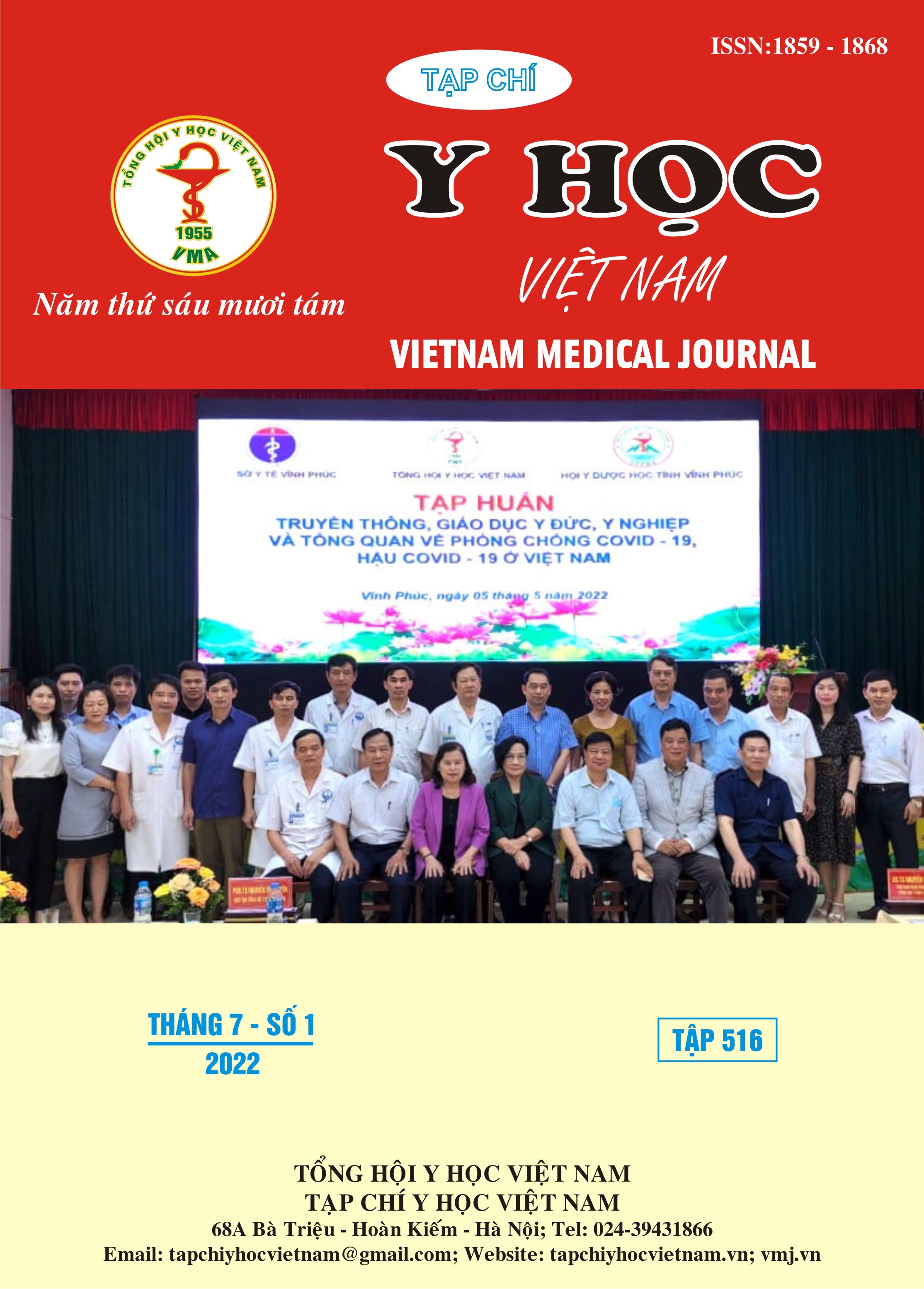KNOWLEDGE, ATTITUDE AND PRACTICE REGARDING HERBS AMONG FIRST-YEAR MEDICAL STUDENTS IN UNIVERSITY OF MEDICINE AND PHARMACY AT HO CHI MINH CITY
Main Article Content
Abstract
Objectives: Traditional medicine, as well as herbal medicine, are increasingly popularly used in the general population. Therefore, students of medical specialties as future medical staff, need to have some knowledge of traditional medicine to equip themselves. This study evaluates the knowledge of traditional medicine as well as the attitude and practice of herbal medicine among first-year medical students. Methods: A cross-sectional study was conducted on 390 medical students of University of Medicine and Pharmacy at Ho Chi Minh City (UMP). Survey questionnaires were validated and descriptive statistical analyzes were performed by SPSS software. Results: The data showed that 98/390 students (25.1%) used herbs of which 82 people (83.7%) used it without consulting a doctor in the past 6 months. Men’s knowledge of herbs’ sources is worse than that of women (p<0.05), however, knowledge about herbal abuse as well as side effects is better (p<0.05). A significant number of respondents (253; 64.8%) believe that herbs can be used in conjunction with conventional medicine. In terms of attitude, the majority agree with the benefits of herbs in maintaining and improving health (188; 48.2%) and curing disease (215; 55.1%). Male students have significantly more attitudes and propensities to use herbs than female students (p<0.05). However, students did not want to use herbs (206; 52.8%), did not recommend it to their family members (266; 68.2%), and did not advise others to use herbs when they had health problems (211; 54.3%). Conclusion: The medical students of UMP were not aware of some important aspects related to herbs, such as combining the use of herbs with modern medicines without consulting; most did not want to use herbs for themselves or instruct others. Incorporating appropriate courses in herbs into medical curricula can fill this gap and clear up misconceptions among students.
Article Details
Keywords
knowledge, attitude, practice, herbs, medical students, Vietnam
References
2. Awad, A., & Al-Shaye, D. (2014). Public awareness, patterns of use and attitudes toward natural health products in Kuwait: a cross-sectional survey. BMC complementary and alternative medicine, 14, 105.
3. Schulz V, Hänsel R, Tyler E (2001) Rational Phytotherapy. A Physician’s Guide to Herbal Medicine, 4th Ed., Berlin, Springer 1-9,13.
4. World Health Organization (1998). Guidelines for the Appropriate use of Herbal Medicines. Từ trang: http://apps.who.int/medicinedocs/en/d/Jh2945e/.
5. Bộ Y tế (2013). Quyết định số 4079/QĐ-BYT Quy định chức năng nhiệm vụ quyền hạn cơ cấu tổ chức Cục quản lý y dược cổ truyền thuộc Bộ Y tế.
6. Ben-Arye, E., Frenkel, M., Klein, A., & Scharf, M. (2008). Attitudes toward integration of complementary and alternative medicine in primary care: perspectives of patients, physicians and complementary practitioners. Patient education and counseling, 70(3), 395–402.
7. Giannelli M., Cuttini M., Da Fre M., Buiatti E. (2007). General practitioners’ knowledge and practice of complementary/alternative medicine and its relationship with life-styles: A population-based survey in Italy. BMC Family Practice, 2007; 8:30.
8. Ameade E.P.K., Amalba A., Helegbe G.K., Mohammed B.S. Mohammed. (2015) Herbal medicine: a survey on the knowledge and attitude of medical students in Tamale, Ghana. Peak Journal of Medicinal Plant Research, 3(1), 1–8.
9. Fugh-Berman, A. Herb-drug Interactions. The Lancet. 2000; 355(9198): 134−138.


